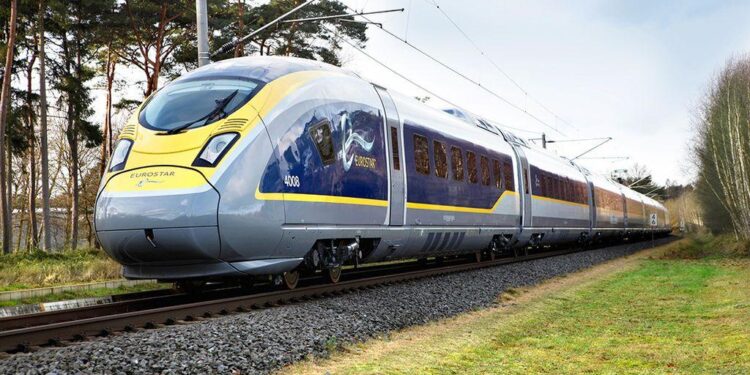Eurostar has announced an increase in its services between London and Amsterdam, signaling a significant expansion in cross-Channel rail connectivity. The enhanced schedule aims to meet rising passenger demand and strengthen links between the UK and the Netherlands. This development marks a key milestone in Eurostar’s efforts to boost international rail travel in Europe, offering more flexibility and convenience for travelers on this popular route.
Eurostar Expands London to Amsterdam Route to Meet Growing Demand
Eurostar is ramping up its night and day connectivity between London and Amsterdam, responding to a surge in travellers opting for sustainable rail journeys across Europe. The rail operator has announced an increase in daily services, introducing new departure times that cater to both business commuters and leisure travellers. This expansion underlines Eurostar’s commitment to enhancing cross-border mobility while reducing carbon footprints.
The upgraded timetable features:
- Two additional daily trains running weekdays
- Early morning and late evening departures for greater flexibility
- Enhanced onboard amenities including upgraded Wi-Fi and catering services
Passengers can now expect a smoother experience with improved connections to local transport hubs at both termini. The surge in demand also reflects growing interest in eco-friendly travel alternatives post-pandemic, positioning Eurostar as a key player in Europe’s green transport movement.
| Route | Daily Services Before | Daily Services Now | Average Journey Time |
|---|---|---|---|
| London – Amsterdam | 3 | 5 | 3h 55m |
| Amsterdam – London | 3 | 5 | 3h 55m |
Enhanced Connectivity and Travel Time Improvements Spur Passenger Growth
Eurostar’s decision to enhance connectivity between London and Amsterdam has proven pivotal in driving a noticeable rise in passenger numbers. By increasing the frequency of services, travelers now enjoy greater flexibility, catering not only to business commuters but also to leisure visitors eager to explore these vibrant European capitals. The reduction in travel times, thanks to operational optimizations and infrastructure improvements, has significantly boosted the route’s attractiveness, making it a competitive alternative to both air travel and road transport.
Passengers benefit from a range of improved amenities and streamlined boarding processes that contribute to a smoother journey overall. Key factors contributing to this growth include:
- Increased daily departures: More options throughout the day accommodate varied schedules.
- Reduced transit time: Faster connections and minimal delays improve overall trip duration.
- Enhanced onboard experience: Upgraded facilities and services promote comfort and convenience.
- Competitive pricing strategies: Attractive fares encourage wider usage of the route.
| Metric | Pre-Expansion | Post-Expansion | Growth (%) |
|---|---|---|---|
| Daily Services | 4 | 7 | 75% |
| Average Travel Time (min) | 240 | 210 | -12.5% |
| Monthly Passengers | 30,000 | 48,000 | 60% |
Recommendations for Seamless Cross-Border Travel Experience and Infrastructure Upgrades
Efficient cross-border travel demands not only increased service frequencies but also a holistic approach to infrastructure modernization. Prioritizing streamlined customs and immigration procedures at key terminals can minimize wait times and enhance passenger comfort. The integration of advanced digital ticketing systems, capable of handling multi-country travel seamlessly, is essential. Furthermore, investing in multilingual real-time information displays helps passengers navigate complex schedules with ease, boosting confidence in international rail travel.
Critical infrastructure upgrades are equally important to support the growing demand on routes like London-Amsterdam. Rail operators and governments should focus on:
- Electrification and track enhancements to increase train speeds and reliability.
- Improved station facilities to accommodate higher passenger volumes and provide better accessibility.
- Expansion of maintenance depots for quicker turnaround times and reduced service interruptions.
| Infrastructure Focus | Expected Benefit |
|---|---|
| Customs & Immigration Automation | Reduced border processing time |
| Electrification Upgrades | Higher train speeds and efficiency |
| Station Modernization | Enhanced passenger experience |
To Conclude
With Eurostar ramping up its London-Amsterdam services, travelers between the two cities can expect greater convenience and flexibility in the months ahead. This expansion underscores the growing demand for sustainable, cross-border rail travel within Europe and highlights Eurostar’s commitment to enhancing connectivity on key international routes. As the service increases frequency, both business and leisure passengers stand to benefit from more frequent departures, signaling a promising future for rail travel between the UK and the Netherlands.












